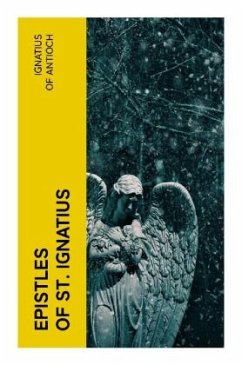The "Epistles of St. Ignatius," penned in the early second century, represent a seminal collection of letters that illuminate the theological and ecclesiastical landscape of the early Christian church. Ignatius of Antioch employs a vivid and heartfelt epistolary style, characterized by fervent exhortations and rich theological reflections. These letters, addressed to various Christian communities, tackle issues such as church hierarchy, the importance of unity, and the nature of Christ, highlighting the formative tensions and aspirations of nascent Christianity in a Greco-Roman context. Ignatius's passionate call for adherence to episcopal authority and his emphasis on the Eucharist reveal the nascent church's struggle to define its identity and practices amidst external pressures and internal divisions. St. Ignatius himself, a prominent bishop and martyr, lived during a tumultuous period of Christian history marked by persecution and doctrinal development. His role as a pastoralleader and his experiences-including his eventual martyrdom-shaped his profound insights into the nature of faith and community. Ignatius's letters were not merely personal correspondence; they arose from his desire to fortify the early church against heresies and instill a sense of solidarity among believers. This work is highly recommended for anyone interested in early Christian theology, ecclesiastical history, or the development of Christian doctrine. The "Epistles of St. Ignatius" provide not only a window into the formative thoughts of one of Christianity's earliest leaders but also a rich source of spiritual inspiration, encouraging readers to reflect on the enduring significance of unity and love within the Christian community.
Bitte wählen Sie Ihr Anliegen aus.
Rechnungen
Retourenschein anfordern
Bestellstatus
Storno








